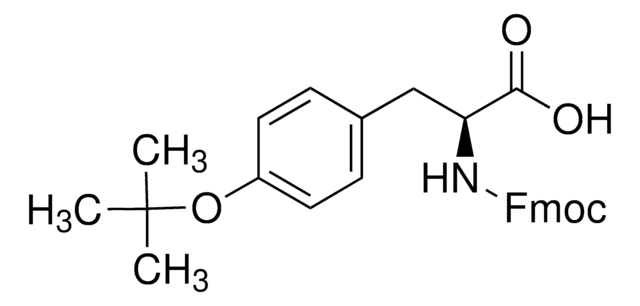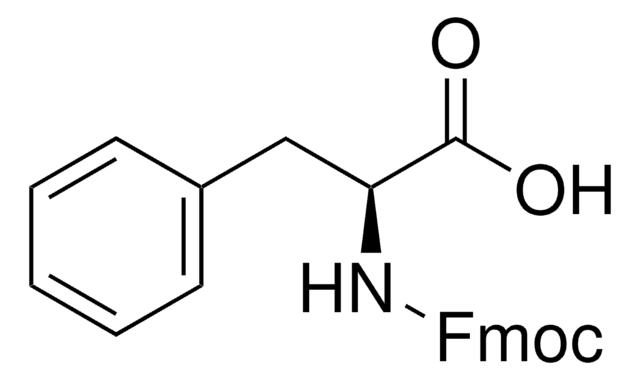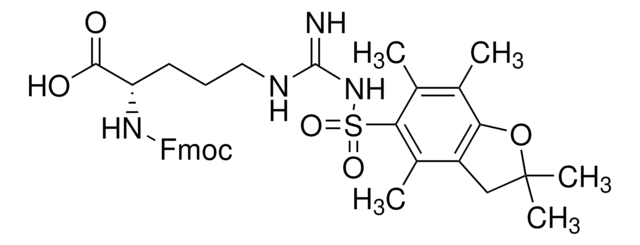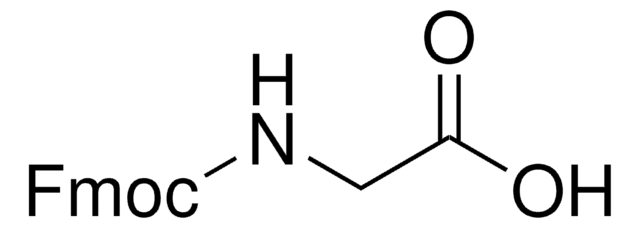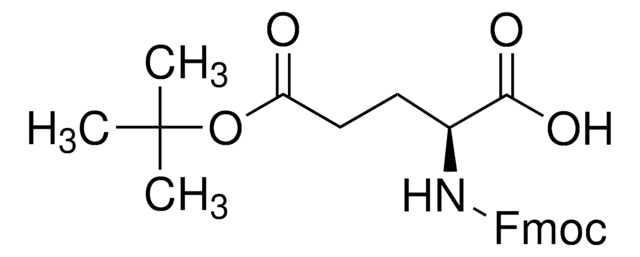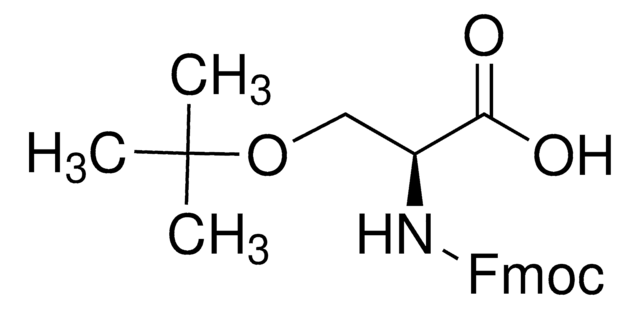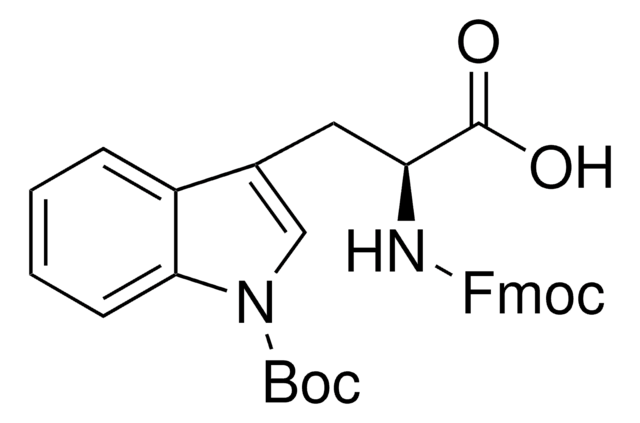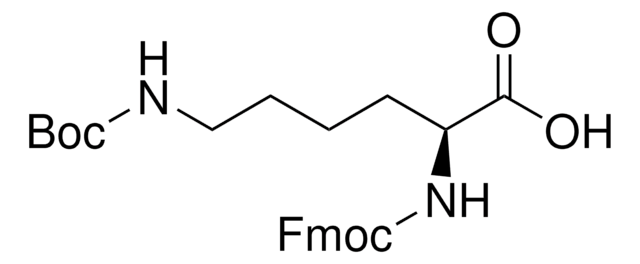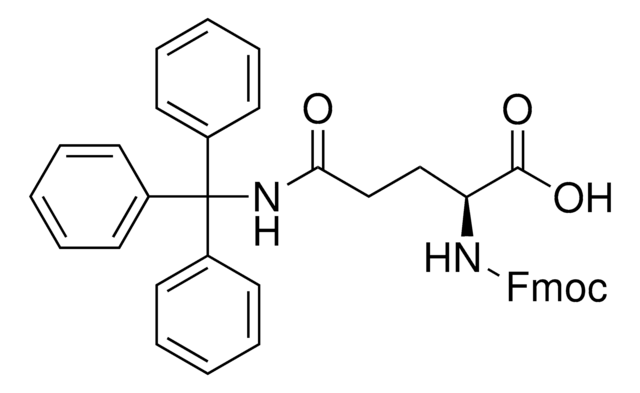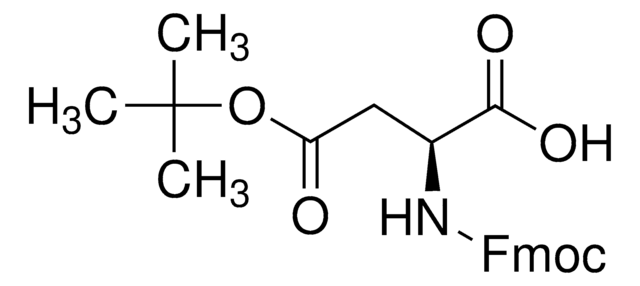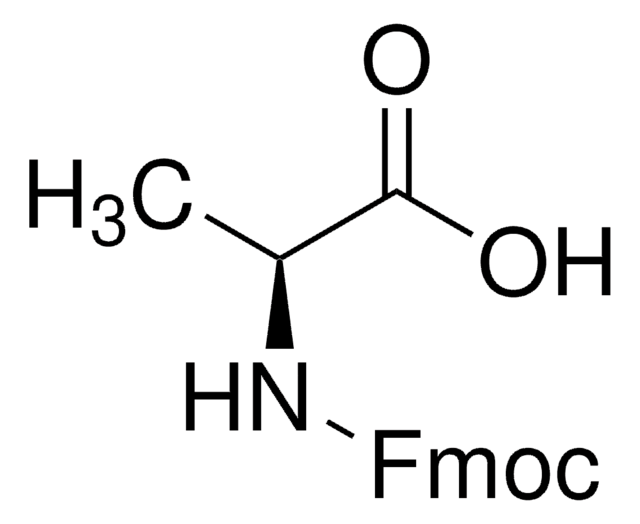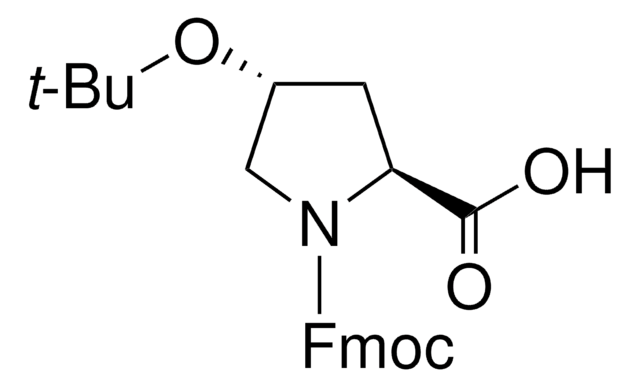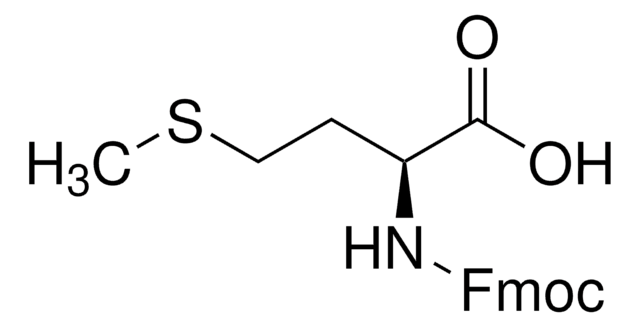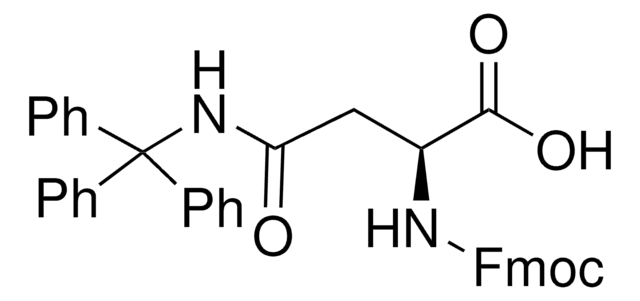47636
Fmoc-Pro-OH
≥90% (HPLC)
Synonym(s):
N-(9-Fluorenylmethoxycarbonyl)-L-proline, Fmoc-L-proline
About This Item
Recommended Products
Quality Level
assay
≥90% (HPLC)
optical activity
[α]20/D −32±1°, c = 1% in DMF
reaction suitability
reaction type: Fmoc solid-phase peptide synthesis
mp
117-118 °C (lit.)
application(s)
peptide synthesis
functional group
Fmoc
storage temp.
2-8°C
SMILES string
OC(=O)[C@@H]1CCCN1C(=O)OCC2c3ccccc3-c4ccccc24
InChI
1S/C20H19NO4/c22-19(23)18-10-5-11-21(18)20(24)25-12-17-15-8-3-1-6-13(15)14-7-2-4-9-16(14)17/h1-4,6-9,17-18H,5,10-12H2,(H,22,23)/t18-/m0/s1
InChI key
ZPGDWQNBZYOZTI-SFHVURJKSA-N
Looking for similar products? Visit Product Comparison Guide
Related Categories
Storage Class
11 - Combustible Solids
wgk_germany
WGK 3
flash_point_f
Not applicable
flash_point_c
Not applicable
ppe
Eyeshields, Gloves, type N95 (US)
Certificates of Analysis (COA)
Search for Certificates of Analysis (COA) by entering the products Lot/Batch Number. Lot and Batch Numbers can be found on a product’s label following the words ‘Lot’ or ‘Batch’.
Already Own This Product?
Find documentation for the products that you have recently purchased in the Document Library.
Customers Also Viewed
Articles
Proline analogues are promising candidates for tuning the biological, pharmaceutical, or physicochemical properties of naturally occuring, as well as de novo designed, linear, and, cyclic peptides.
Proline analogues are promising candidates for tuning the biological, pharmaceutical, or physicochemical properties of naturally occuring, as well as de novo designed, linear, and, cyclic peptides.
With a growing peptide drug market the fast, reliable and uncomplicated synthesis of peptides is of paramount importance.
Our team of scientists has experience in all areas of research including Life Science, Material Science, Chemical Synthesis, Chromatography, Analytical and many others.
Contact Technical Service